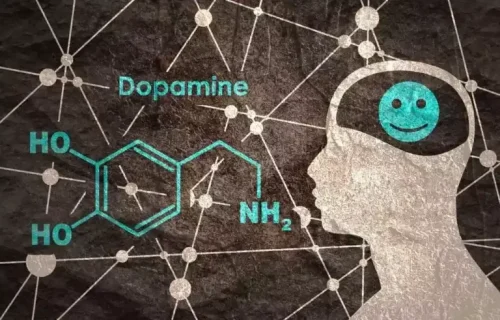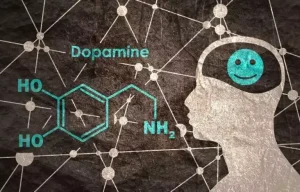
Psychedelic-based therapies, for instance, show promise in helping individuals rewire neural pathways, reduce cravings, and process underlying emotional pain. At Clearmind Medicine, we are exploring novel compounds like MEAI to target AUD, offering the potential for long-term solutions beyond abstinence. Rimm thinks the biological evidence still shows that moderate alcohol consumption offers a small benefit for heart disease and other conditions such as type 2 diabetes. But these benefits are probably averaged out—or maybe even outweighed—by traffic injuries, breast cancer and other risks of moderate drinking. Among the 110 participants, mean age was 51.4 years (± 10.0), 81.8% were male, 38.2% were non-Latinx White, 38.2% were African American, 23.6% identified as having other racial origins, and 15.5% were Latinx. Race/ethnicity was dichotomized to contrast non-Latinx Whites to all persons of color in subsequent analyses.

Could Drinking Be Fueling Your Depression?
The key, according to Seija, is not to do Dry January just to go binge drinking on February 1 but to perhaps find a new drinking pattern that feels comfortable and sustainable. Retirees who reported binge drinking also tended to have more symptoms of depression than non-drinkers, researchers found. Binge drinking is defined as five or more drinks on the same day for men and four or more for women. In addition, most rely on self-reporting that may be inaccurate, do not analyze binge drinking, do not assess alcohol consumption over a lifetime, or do not account for the fact that some study subjects may change their alcohol consumption due to alcohol-related health problems. These limitations make it hard to know how much to rely on studies that find health risks (or benefits) to alcohol consumption. Whether depression is a stand-alone diagnosis or caused by drinking, alcohol often worsens symptoms.
Highway Exhaust Linked to Depression in Women

And plenty of people who had been “social drinkers” began drinking more alcohol to cope. In fact, a report led by Harvard researchers affiliated with Massachusetts General Hospital found that excessive drinking in the U.S. increased by 21 percent during the COVID-19 pandemic. Among people with major depressive disorder, the co-occurrence of AUD ranges from 27 to 40 percent over a lifetime, according to the National Institute on Alcohol Abuse and Alcoholism (NIAAA). Though these types of feelings and experiences are universal, they usually resolve themselves in short periods.
Can drinking raise my blood pressure?
- Trade or proprietary names appearing in this publication are used only because they are considered essential in the context of the studies reported herein.
- Kim, Pinkston, and Stein substantially contributed to the study’s conception, design, interpretation of the data, and reporting of the results.
- However, as pointed out by Kushner (1996), larger studies of COA’s who have passed the age of risk for most disorders will need to be conducted before final conclusions can be drawn.
- This is why, at first, alcohol can make our brain experience relief from distress.
- “Cells are living beings, and if you want to fix the issue of depression at the level of the cells, they cannot be inebriated,” says Taylor.
It helps people understand events and thought processes that lead to depression and substance misuse. During therapy, you can learn coping https://ecosoberhouse.com/ mechanisms that can help you return to life without drinking. Individuals with alcohol use disorder may drink too much alcohol, too often.
Treatment for Co-Occurring Depression and Alcohol Use Disorder
And research continues to produce better medications and therapies to help you detox more comfortably and effectively treat depression symptoms. Several medications and behavioral treatments can help with both depression and AUD. Sometimes it’s difficult to determine the cause-and-effect dynamic between alcohol and depression. Some people with underlying depression may start using alcohol to find relief from their symptoms.
- Since alcohol can cloud your brain, it can keep you from seeing helpful solutions to problems.
- Results show that retirees suffer more depressive symptoms than people who are still on the job, researchers said.
- Medical practitioners have discovered that to truly be effective in treating these conditions, they must be treated simultaneously.
- There are real concerns about medication interactions with alcohol in patients who were still drinking.
- Additionally, intensity of alcohol use could be a confounding factor that varies depending on available social supports.
- And if you start drinking at an early age, your risk of alcohol use disorder is higher.
General Health

Some experts also suggest that both depression and alcohol use disorders share underlying pathophysiology in that they are both neuroinflammatory conditions. If you believe you’re susceptible of experiencing alcohol addiction or depression, you may want to speak with a mental health professional, such as a social worker, counselor, or therapist, about these concerns and how best to prevent or cope with these disorders. Innovative treatments are beginning to reshape how we understand and address alcohol misuse.
Drink plenty of water

In one 2018 study, 60 people who recently detoxed from alcohol experienced fewer depressive symptoms after participating in Sudarshan does alcohol make depression worse Kriya Yoga for just 2 weeks. Recovering from depression and AUD is difficult because the disorders can worsen one another. It is important to remember, however, that certain studies show some overlap among depressive, anxiety, and alcoholic disorders in the same family. Many of these studies are mentioned in the Schuckit and Hesselbrock review, including the work by Merikangas and colleagues (1985).

Major Depressive Disorder (MDD)
“That’s where this idea of sober-ish comes to play.” This can involve having alcohol-free days, ordering fewer drinks or turning to nonalcoholic beverages as a way to preserve the social benefits of drinking. For example, people who have at least six drinks a day account for about half of alcohol-related cancer cases globally despite representing a small fraction of the overall population—1 to 2 percent of women and 10 to 20 percent of men in the U.S., for example. Even among the positive studies, potential health what is Oxford House benefits are often quite small. In addition, alcohol may reduce the risk of one condition (such as cardiovascular disease) while increasing the risk of another (such as cancer).
